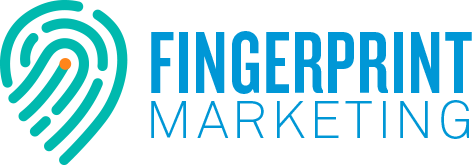Do you ever feel like your head’s spinning when it’s time to sit down and focus on marketing?
We have so many options these days for small business marketing that it can be overwhelming to choose which methods to prioritize.
Before you can even begin to figure out where to allocate how much of your marketing budget, you have to understand:
- Why and what you want to market
- Who you want to reach
- And how to reach people in the most effective way possible
To top it off, you need to do it better than other businesses out there (your competition).
Today, we’re showing you exactly how to create a marketing budget for your small business. How much it costs, in the end, will very much depend on YOU: your needs, your goals, and your available resources.
The Purpose of Marketing for Your Small Business
The purpose of marketing is to get the word out about your products or services – in a way that draws in the right people and gets them interested enough to buy what you sell.
As the U.S. Small Business Administration (SBA) says, “marketing isn’t an expense – it’s an investment.” And like everyone else always says, you get what you pay for. Pay for the best software, tools, strategy, plan, and the right players to implement it all, and your business will thrive.
On the flip side, if you don’t invest in marketing and set up the right systems to get in front of the right people with the right messaging, your business will fall flat.
Here’s why marketing is a wise investment for your small business:
It Gets Your Name Out There
Brand name recognition can help you drive (a lot) more traffic to your website. 82% of searchers on Google click on brands they’re already familiar with. Keep people happy, and keep getting in front of them, and you’ll build a brilliant reputation for yourself over time.
It Shows the World What You Have to Offer
How will you make sales if no one understands what you’re selling in the first place? It starts with marketing – AKA getting the word out to the right people.
It Gets You in Front of People Who Want What You Have
You’re not supposed to market to everyone. That’s the best way to waste your entire marketing budget. Instead, you should establish a unique niche and target a specific group of people looking for exactly what you offer. Quality over quantity, my friend.
How to Determine Your Small Business Marketing Budget
You can figure out how much you need to allocate toward marketing by examining these fundamental elements.
1. Your Customers
Who’s going to pay for your services or buy your products? Create buyer personas so you have a detailed profile of the kinds of people who fit the bill. Pay attention to demographics, location, brands they love, online channels they use, and any unique traits.
2. Gross Revenue
Business 2 Community says that small businesses spend around 7-12% of their gross revenue on marketing. Ding ding ding! It’s the answer you’ve all been waiting for, folks.
Now, keep in mind that many small businesses don’t spend enough money on marketing. Others spend too much but don’t have the right strategies or marketing plan to spend their money wisely. Marketing budgets are all too often wasted. Such a pity.
3. Your Competitors
Before you can develop an accurate budget, you also need to research competitors and current marketing trends. What are other marketers in your industry doing that’s working? Are specific software, tools, and technology bringing similar businesses success? What channels and strategies help them build brand awareness, bring in traffic and leads, and make sales?
Campaign Monitor surveyed over 1,000 small business owners. Here’s what they found:
- Social media is the most common platform for building brand awareness.
- The best opportunity for gaining new customers is social media marketing.
- 78% of small businesses plan to increase spending on digital marketing moving forward.
- The biggest goal – and challenge – is acquiring new customers.
- The most-used channels are email marketing and Facebook (although many participants also reported that Facebook isn’t working for them).
- Email marketing is the #1 platform for scoring the highest return on investment.
Keep these trends in mind as you form your marketing plan and budget.
4. Your Priorities
Figure out how much each channel, platform, strategy, and subscription will cost. Here are some areas to consider including in your budget and marketing plan. Think about who you need to hire for each task, the software and tools you’ll need, and the time to go into each job.
- Advertising (on social and search engines)
- Social media marketing
- Email marketing
- Content marketing
- Search engine optimization (SEO)
- Content management system (CMS)
- Content relationship management (CRM)
- Website hosting, design, development, maintenance
- Design
- Printing
Leave Your Small Business Marketing to the Pros
Marketing can be overwhelming, even for the most proficient marketers on the planet. Not only does it require a lot of time, energy, and strategy, but it’s always changing! Just when you think you’ve owned Instagram marketing or outsmarted Google’s latest algorithm, it changes. Back to the drawing board we go.
If you’d like to hand off the marketing madness to people who live and breathe the stuff, let us know. We’d love to get to know you and your business and develop a marketing plan that knocks your socks off.
Book a consult with us. First one’s on the house!
